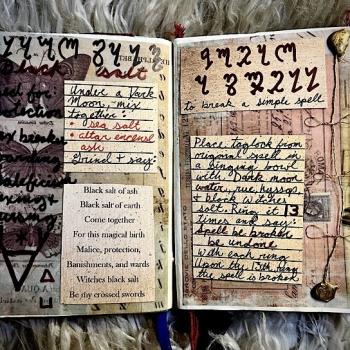Find other posts related to this topic on the link round-up post!
A vital element for genuine community and solidarity is a shared and accepted body of values.
Reconstructionists and members of ethnic polytheistic traditions feel that there is a significant difference between their own beliefs and values and those of Neopagans to feel justified in regarding themselves as a separate and distinct religious community. This difference (perhaps even conflict) of values revolves around where each community locates the locus of its values, ideas, and practices. Reconstructionist and ethnic traditions locate their beliefs and values in a pre-modern pagan era, where family, community, hierarchy, tradition, and honor are valued. Neopagans find theirs in a later era that perceived itself to have discredited pre-modern or classical beliefs and values, an era that roughly began with the Enlightenment, which values individualism and individual reason, non-conformity, secularism, and liberation.
These loci of values manifest very real differences in the religious priorities and practices among reconstructionists and Neopagans. Where reconstructionists prioritize the family as the principal unit of religious activity, Neopagans tend to practice solitarily or in covens of individuals. Where Neopagans value individual revelation and gnosis informing religious practice, reconstructionists accept as legitimate the constraints of history and tradition on religious practice; religious authority is vested in historical custom and communal consensus. For Neopagans religion centers on procuring mystical insight, advancing self-transformation and empowerment, and working magic, whereas reconstructionists understand religion as establishing the right relationships with various gods and spirits.
Theological differences also inform reconstructionists’ desire to separate themselves from Neopaganism. Neopagan theological discourse is often dominated by liberation and feminist theologies, and process philosophy, all whose propositions are inherently hostile to classical pagan theology and metaphysics, which is alienating to those whose theology is informed by, say, Platonism (which is the case for many people involved in “Mediterranean” traditions).
This locus in the pre-modern perhaps explains why Mr. Jacob can feel more comfortable and “at home” among Hindus and First Nations people than with Neopagans. And he is not alone in that sentiment.















